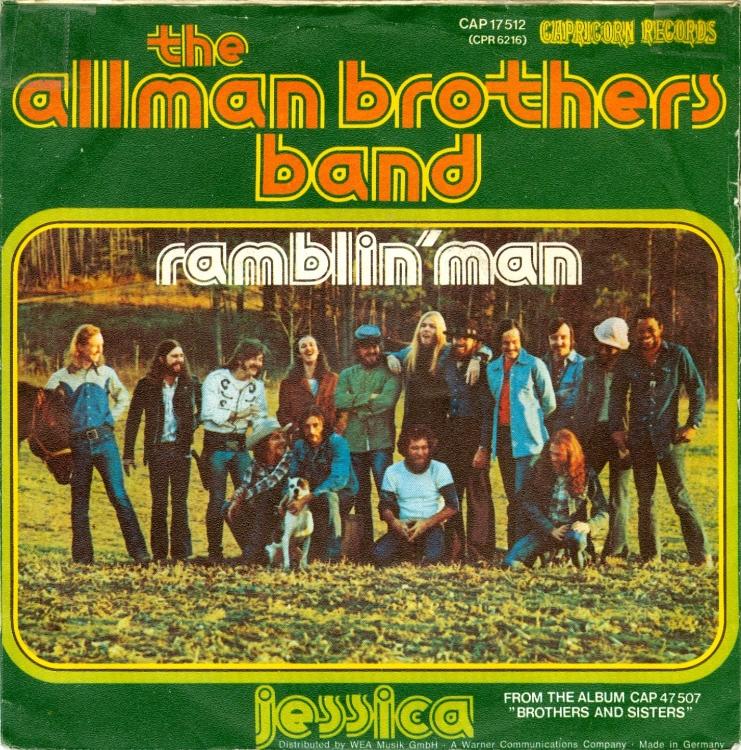
Section Branding
Header Content
Allman Brothers Were A Force For Racial Integration In The South
Primary Content

The Allman Brothers Band was one of the most influential southern rock bands of the 1970s, and their legacy has left a lasting impression on the South, where they were a force for racial integration.
So writes Galadrielle Allman in her new book "Please Be With Me: A Song For my Father, Duane Allman." She was just 2-years-old when her guitarist father died in a motorcycle accident in 1972.
Allman appeared for a book signing recently in Macon, the city where the band spent its formative years.
"In some ways, the Allman Brothers attaining success with a black man in the band, the fact that they were named brothers and that they all treated each other and felt deeply that they were family, really shifted the conversation," she said.
Jaimoe Johnson, who is African American, played drums in the otherwise all-white band.
"They actually often had to sign race riders when they would play at different clubs in the South, when they had to basically admit that there was a black man in the band, and they would take responsibility for his behavior should anything happen," Allman said.
The Allman Brothers also promoted racial understanding by introducing white Southern audience to the songs of black blues, R&B and jazz musicians. Whereas earlier white artists played black compositions without attribution, the Allman Brothers were sure to cite the original artists of every cover song they performed, Allman said.
"Those were their heroes, so there wasn't this sense of distance or looking down on black people or black culture ever," she said. "I think that was an important source of inspiration that they were really aware of."
Allman's book published in March, 2014, is available for purchase in bookstores and online.
Tags: Allman Brothers, The Allman Brother Band, Adam Ragusea, Duane Allman, Maggie Johnson
Bottom Content
